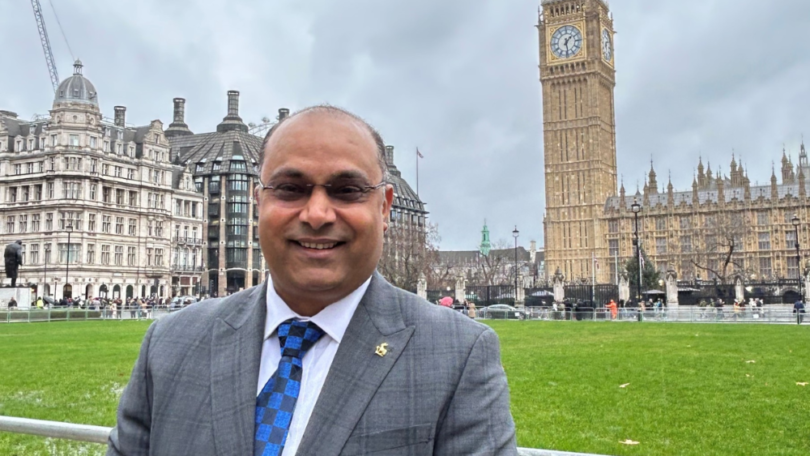With cities like London, Brighton and Sheffield battling air pollution that breaches legal limits, MPs were told on 5 December that tree planting done well could significantly help halve air pollution.
Parliament’s Environment, Food and Rural Affairs Select Committee was hearing evidence on green spaces in towns and cities.
Addressing MPs, Professor Prashant Kumar, co-director of Surrey’s Global Centre for Clean Air Research, said it was important to place trees correctly:
“If you put trees all over London, the difference would be negligible. But if you strategically put those trees around the source locations, it could reduce the exposure (to nitrous oxides) by more than half.”

Professor Kumar in the committee meeting (copyright: Parliament TV)
Research carried out at the University’s School of Sustainability, Civil and Environmental Engineering has already demonstrated that roadside planting can significantly reduce the impact of air pollution from vehicles. However, the size, shape and position of the plants make a big difference to how much pollution is blocked.
Professor Kumar also discussed the wider benefits of green infrastructure – stressing that new parks, waterways and green walls mitigated the impact of flooding, improved mental and physical health, and brought down urban temperatures.
He told MPs that during last summer’s record-breaking temperatures, wooded areas of Guildford were 13°C cooler than the city centre.
The panel also emphasised the need to address a skills shortage in the sector – and spoke of the importance of educating the public on how they can make a practical difference in the area where they live.
Stressing the importance of academics engaging with policymakers, Professor Kumar said: “Public and policy engagement is a really important part of what we do, and it was fantastic to engage with Parliament – seeing MPs understand the value of academic research.”
Feature Image copyright: University of Surrey







